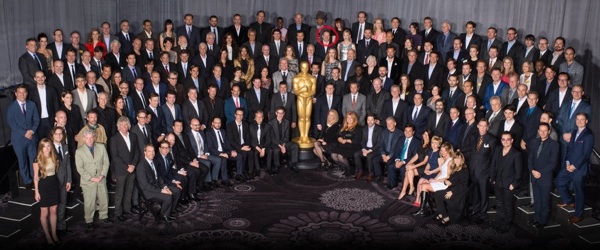If you ask producer Kim Magnusson how he’s managed to make more than 100 shorts over the course of his 19-year career—including one Oscar winner and another four that have earned Oscar nominations—he will tell you that working around the clock has a little something to do with it. “All of January I only slept three or four hours a night,” Magnusson says. “When I work in Denmark, I work locally from 9:00 a.m. to 6:00 p.m., go home with the kids and try to be family man and father, and then after the kids go to sleep, I work on email and by phone with LA until three or four in the morning.” Clearly, those long hours are paying off. Magnusson is one of the nine Film Independent Members nominated for a 2014 Academy Award. Up for the Best Live Action Short award, Helium is a moving story of a dying boy who finds comfort in the tales told to him by the hospital janitor of a magical land called Helium. Despite the grueling schedule, Magnusson says, “I’m smiling. Being nominated and shooting two features at the same time is a great, great thing. I can’t complain and I don’t complain, given the way it is in the industry and in the independent film world, it can take years to get going so I’m just happy to have a big work load.” At the moment, his production company M&M is in the middle of an animation feature in Denmark, and prepping and financing Anders Thomas Jensen’s next feature film. (Jensen hasn’t directed since the acclaimed dark comedy Adam’s Apples (2005), which was also produced by Magnusson.) From its earliest days, M&M, which Kim founded with his father Tivi Magnusson in 1995, has a long history of making short films as a means to help refine the work of young filmmakers. “For us it’s all about growing talent, finding talent and nursing talent. It’s like a little film school,” Magnusson says. When M&M started, it quickly gained a reputation in Denmark as “the alternative film school” he says, a place where talented directors who later went on to become the country’s “heavy hitters” got their start. “Short films don’t make money,” he says. “On contrary, it’s basically an investment for future projects with these talents.” Unlike filmmakers who make shorts out of a fragment of a story to attract interest and financing for the feature version, Magnusson’s shorts aim to tell a complete story. “We’re not saying ‘let’s try to make a first act,’ then you lose the nerve, the core feeling of what it’s about.” The goal for him is to get the audience emotionally attached, “to cry or laugh, to feel something in your gut.” Simplicity is key, he says, to being a successful short filmmaker. “Don’t try to over-achieve, production-wise. Don’t think you can put an action thriller in a 25 or 35 minute short just to show you can make a big stunt scene. If somebody comes to me and shows something with big explosions and I can’t feel in my gut some type of emotions, then it doesn’t work for me. Don’t try to impress people. That doesn’t work. Keep it close to the story, close to your heart.” As for the upcoming Oscars, Magnusson says the experience gets no less thrilling over time. “The first time, it was amazing of course. It’s still the same feeling because it’s something you don’t want to count on as being possible. But I’m not so hysterical as the first time. I know the practicalities. I know what’s going to happen. The first time when it was brand new, it was confusing. Getting up on that stage and standing there and looking down at the audience was amazing. My director couldn’t speak. He was almost fainting behind me. You have that red screen flashing ‘Please finish. Please finish.’ By the time you get up stage, it’s already flashing ‘Please finish.’ You have to focus on someone to not get confused. Giving the speech was natural. I was totally nervous and closed my eyes and didn’t think about it. I was focusing on Jack Nicholson and Steven Spielberg.”
Pamela Miller / Website & Grants Manager
